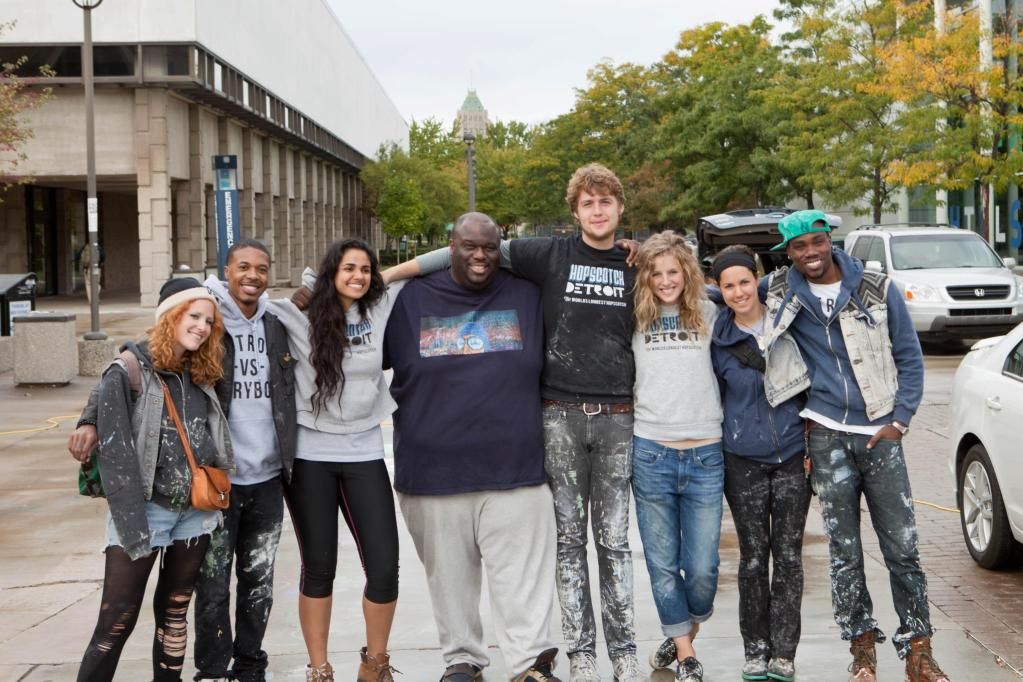DETROPIA



Detropia was screened last week at the Michigan Theater as a part of the semester series Motor City Movies: Discovering Detroit. There was a lot of buzz the film around town so naturally it peaked my curiosity. I went with three girls from my English class who all left feeling riled up by the portrayal of the city. The story covered several different characters who are struggling to live vibrantly through Detroit’s struggling state of affairs. A video blogger, a politician, a bar owner, a pair of hipsters, a union organizer are all cast as themselves in the tale of this ‘crumbling’ city.
From a cinematographic stand point, the documentary was beautifully shot, carefully organized, and visually intriguing. It revealed a colorful exposé of an urban landscape brushing up against decay and the simultaneous resurgence of nature in the form of fields and wild weeds. Furthermore, it high lighted aspects of the city that are integral and historic, like the Detroit Opera House and the Automobile Show. Yet while the picture was well crafted, it lacked a lot of content that would otherwise make it more…accurate. For example, there were no Hispanic people featured and there is a long history of native Spanish speakers living in Detroit. Also, many of the African-American characters seemed to be parodies of themselves, caricatures even. This was part of the controversy that many viewers felt upon watching the film.
I agree that the directors missed the mark on many story lines that exist in and define Detroit. Perhaps they even perpetuated Detroits demarcated name by portraying it as a failed city. At the same time, I don’t feel personally critical because I thought the documentary was a tightly knit and well worth my time simply because it was a true piece of visual art.
Just before watching, I listened in on the first half of the ‘Detropia Panel’ in Angell Hall, hosted by Semester in Detroit. I left feeling the general consensus was that native Detroiters felt offended by the portrayal of the city whereas outsiders felt curious about the strife, or positively moved by the story line. Questions were raised about who this film was intended for and if the location of its screening altered its message in any way. One of the strongest criticisms was that the film ignored community organizations, non-profits, and other group efforts to revitalize the city that are alive, inspired, and current. This defiant voice was carried by students who participated in active internships as part of Semester in Detroit last year.
One of these grassroots orgs, for example, is a group of six U of M alums who graduated last spring and moved downtown to form a small company called Wedge Detroit. On Saturday September 22, they group broke a world record by hosting a four mile long hopscotch course as part of the Detroit Design Festival. The event saw huge success and celebrated the urban vitality that organizations are trying to re-inject into the city.

Ellen Rutt, TJ, Ajooni Sethi, James, Dylan Box, Laura Willming, Marissa, and Flaco at Hopscotch Detroit.
Get inspired and check out info about Hopscotch Detroit. They are proof that Detropia did, indeed, gloss over the part about young people organizing their energy for the good of the city. For more about the film, check out the Detropia website and Facebook page or to see an interview with directors Rachel Grading and Heidi Ewing, click here.

